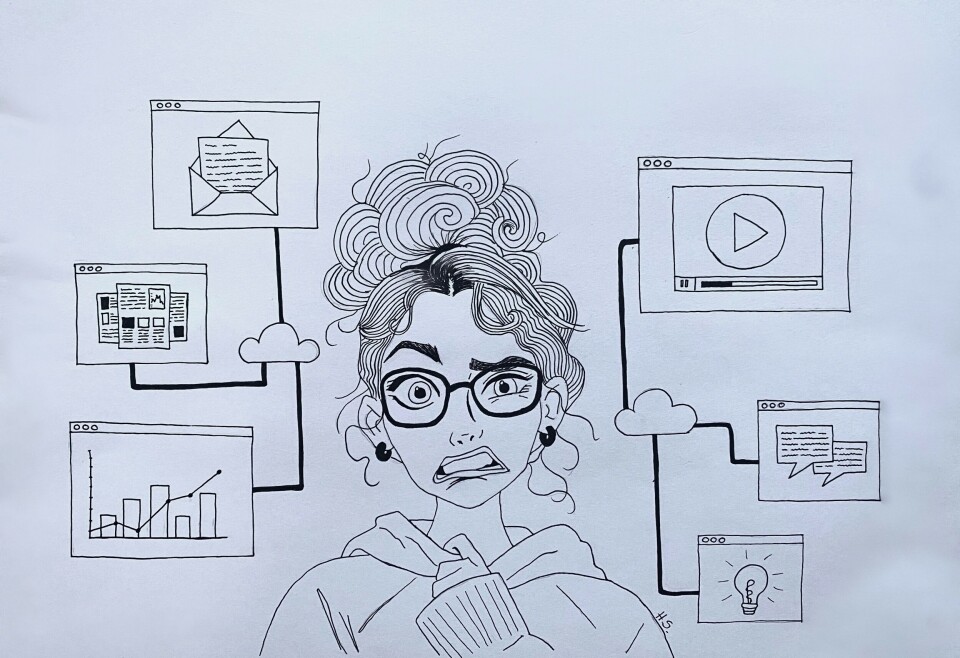We were not prepared for this: from offline to online classes
OPINION: How the lack of modern e-learning techniques has impacted our academic lives at University of Bergen.

When the coronavirus came to Norway, changes happened quickly: the classes on the campus were suspended, international students immediately left the country, and we started to take our classes through the screens of our electronic devices.
Uncertainty started to crash down our encouragement: despite having more time to spend in our assessments, the constant flow of information worry us. It is not as easy to focus.
The transition from an offline to fully online student life has not been easy for a number of reasons: lack of a preventive plan, psychological issues due to the situation, and outdated online teaching techniques that do not make home learning attractive at all.
According to a small survey that I made at UiB International Students Group 2019/2020 these are the most popular apps and programs used by the teachers to give online classes:
This suggests that there’s little consensus among teachers regarding what app or program is the most well adapted to teach online.
Some students have faced challenges using these different apps or programs because they were not familiar with them, technical problems, or ignorance about their tutorials.
With online classes, students do not get the social interaction necessary to establish closer bonds with their classmates. I think the absence of the international students in the city has produced a grayer atmosphere, and not being able to see your teacher or tutor in person makes it hard to assimilate for some students.
Talking about the classes, they have not been what they should be. Online tools are very powerful in the process of learning. Meanwhile, the marketers are taking over the place that should correspond to the prepared teachers. Some courses developed by digital marketers are more interesting and applicable in «real life» because they offer modern e-learning techniques, not just applicable to digital marketing, but also in things that easily could be applied in any profession – like video editing or social media management. Therefore, they are becoming strong competitors that seduce students more interested in practical knowledge than academic life.
In defense of the teachers, it is not easy to juggle one more unexpected obligation in addition to their regular duties. All the teachers at UiB are masters or doctors with brilliant careers and seem very capable of guiding the students while they learn, but some of them are too old fashioned or don’t have the skills needed to develop online courses, above all from one day to another.
Although some colleges in Europe offer fully online degree programs, UiB is not one of them: UiB just offers MOOCs and other short courses in partnership with FutureLearn, an e-learning web platform created by the British Open University and The SEEK Group.
UiB is trying to identify the problems and opinions of the students about the unexpected e-learning experience, making a survey that aims to compile more reviews through e-mail.
In conclusion, this could be the opportunity for UiB to get immersed in the new trends of e-learning techniques, to compete with other universities that do offer online degree programs and a challenge for the students to adapt to a more technological world.
- OPINION: My life is a first world problem
















